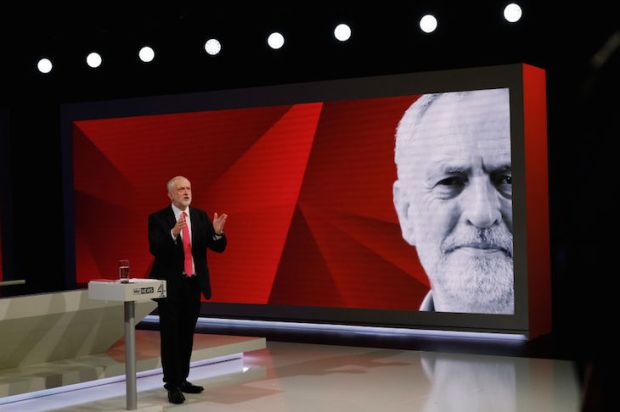In his new book Move Fast and Break Things, the American academic Jonathan Taplin makes a decent case that, democratically speaking, the internet has gone awry. Tools and freedoms which originally promised to allow individuals to challenge the powerful, he argues, are instead exploited by the powerful to dodge the demands of society. He’s writing about copy-right and tax, mainly. But he could have been writing about political advertising.
On the radio last weekend, my friend and colleague Lord Finkelstein (I don’t actually call him Lord Finkelstein) was talking about the skills of Sir Lynton Crosby, the Tory election mastermind. ‘Lots of election campaigns are taking place where you can’t see them. They’re going direct to people in their inboxes, on Facebook, in their browser,’ he said. ‘You can run a hard negative campaign to those people who are susceptible to it, and never bother those who aren’t.’
There is a low level hum about online political advertising right now; a sense of bubbling concern that something murky is happening between big money, big data and our electoral process. The Observer, particularly, has been hitting the subject hard, seeking to untangle links between American billionaires, Donald Trump data firms and our own referendum on the European Union. This stuff is fascinating, if inconclusive, and if you want to know more about it, I’d point you in the direction of that newspaper’s Carole Cadwalladr, who is doggedly pulling the picture together.
What I find myself wondering is how this murky process ends. Or to put that another way: sure, let’s accept that billionaires have paid data scientists to target narrow but vital bits of electorates. What, though, do they actually target them with? It’s too easy to regard this as unknowable tech-wonk voodoo. In the end, surely, it’s just people reading stuff.
Fink’s comments (I don’t actually call him Fink either) on Crosby bring it all home. For Crosby, more than anything else, is famed for the strategy of ‘throwing a dead cat on the table’. As in, if you don’t like the way political debate is going, you hurl the dead cat on the table and suddenly everybody is talking about the cat. Marry this with targeted, invisible advertising of the sort discussed above, and you suddenly realise the potential for there not to be just one dead cat but multiple dead cats. All across Britain, indeed, there could be people about to vote on the basis of dead cats that are lying festering on their kitchen tables.
What’s more, this won’t all be thanks to the Tories. The Labour party, the Lib Dems, they’ll be throwing out dead cats, too. Perhaps if rival parties knew those cats were there, they could alleviate the concerns they raise. Indeed, perhaps if other supporters of the same parties knew the dead cats were being doled out like this — splat, mangled head into the butter — they’d be put off mightily. But nobody does.
For a theoretical example, consider the Lib Dems’ comments last week about legalising cannabis. Among, say, West Country voters dithering between them and the Conservatives, some people will care about this enormously, and their data profiles (attends church, reads the Daily Mail etc) will provide clues about who they are. So on to their tables, thanks to the Tories, goes a stoned, cross-eyed Lib Dem dead cat, reminding them that this is the party that wants your nephew to get baked on skunk and drop out of university. Yet simultaneously — and this is the clever bit — there will be other potential Tories who aren’t so bothered about skunk. For these liberal, urban, George Osborne types, the spectacle of a stuffy old Tebbit-style Conservative party which thunders disapproval about weed may be an active deterrent. So these people never see the stoned Lib Dem dead cat. These people don’t even know it was ever there.
In political terms, this ability may be invaluable. In terms of society and democracy and rational national debate, it’s obviously a disaster. The question of what we do about it, though, is difficult.
Arguably, online political communication of this sort is no more shadowy or secretive than a leaflet through a letterbox, which makes it hard to argue for curbs without actively arguing for curbs on the freedom of speech itself. Yet to go back to Taplin, right up at the top, this is power, hiding behind the freedoms of individuals. Is it possible to argue that it is right that individuals can send each other WhatsApp messages without the state knowing, yet wrong that a millionaire who wants us to leave the EU can send 50,000 Facebook messages without the Electoral Commission knowing? Somehow we have to find a way.
Now is a good time to do it. For what-ever reason, and certainly compared to Brexit, Trump or even the 2015 election, this election doesn’t feel like it is happening terribly invisibly. Unless something wholly unexpected happens, few people afterwards are going to claim that shadowy communications played a major role — which means the law can be changed without it feeling like pique. I’ll leave the technicalities to others, but it seems to me that any paid political communication simply has to be available to the wider public for scrutiny, even if that just means CC-ing it to a boring website depository. Perhaps that becomes the obligation of the advertising platform such as Facebook or Google; perhaps this obligation even ought to extend to paid advertising of any sort. I’m not sure. All I do know is that one way or another, this ruse of hidden dead cats needs to end. Otherwise, even when our eyes begin to water, we’ll have no way of knowing why the whole place stinks.
Got something to add? Join the discussion and comment below.
Get 10 issues for just $10
Subscribe to The Spectator Australia today for the next 10 magazine issues, plus full online access, for just $10.
You might disagree with half of it, but you’ll enjoy reading all of it. Try your first month for free, then just $2 a week for the remainder of your first year.















Comments
Don't miss out
Join the conversation with other Spectator Australia readers. Subscribe to leave a comment.
SUBSCRIBEAlready a subscriber? Log in